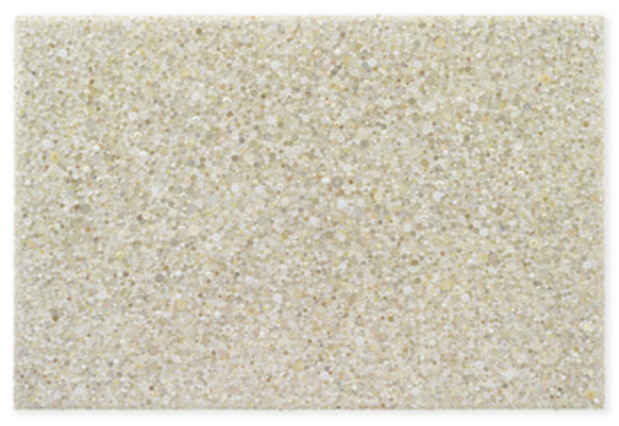Mike Kelley “Memory Ware”
Hauser & Wirth

This event has ended.
Hauser & Wirth present ‘Memory Ware’, the first exhibition since 2001 devoted exclusively to the celebrated series of the same name by the late Los Angeles artist Mike Kelley (1954 – 2012). Over the course of his influential four-decade career, Kelley generated a remarkably diverse oeuvre in an array of mediums, conflating high and low culture, critiquing prevailing aesthetic conventions and colliding the sacred with the profane. Comprised of some 100 Memory Wares and associated works made between 2000 and 2010, the Memory Ware series occupies a prominent place in Kelley’s materially and conceptually complex output. It includes two- and three-dimensional pieces: wall works known as Memory Ware Flats and freestanding sculptures. The exhibition at Hauser & Wirth will showcase almost two dozen Memory Ware works, most on loan from museums and significant international private collections.
On view through 23 December, ‘Memory Ware’ will coincide with the release of the first ever book to document Kelley’s entire Memory Ware series. This volume, published by Hauser & Wirth Publishers in association with the Mike Kelley Foundation for the Arts, features an essay by Ralph Rugoff, Director of the Hayward Gallery, London, offering a fresh analysis of the Memory Ware series and its position within Kelley’s practice.
Ralph Rugoff on Mike Kelley’s Memory Ware Series
Mike Kelley’s Memory Ware series embodies the thematic engagement with memory-related concerns that informed the second half of the artist’s career. Beginning with such projects as Educational Complex (1995), a model conflating his recollections of the design of his childhood home and every school he attended, and Categorical Imperative (1999), a sprawling installation that re-contextualized leftover production materials from 20 years of art-making, Kelley devoted himself to exploring conventions of remembering, representing, and reconstructing the past. Fuelled by a deeply felt antipathy toward nostalgia, and incorporating references to personal, folk, and collective histories, these works were formally realized in ways that evoked tropes of modernist aesthetic practice and theory, while critically reflecting on the criteria and categories through which recent art historical memory has been forged.
Kelley borrowed the phrase ‘memory ware’ from a type of folk art popular in black communities of the American South and in Victorian Britain, in which the surfaces of common household vessels – bottles, vases, lamps – are covered with such small personal items and keepsakes as keys, buttons, shells, and beads in a matrix of clay. Kelley first encountered examples of the genre at a Toronto antiques fair in 2000, where he purchased a memory ware bottle. Given his existing interest in remembrance and in re-purposing materials with prior histories, as well as his long-term engagement with the aesthetics of craft and folk art, Kelley recognized in this find the possibilities
for developing new works that deployed the memory ware aesthetic towards very different ends.
At first glance, the Memory Ware project would appear to be an anomaly in Kelley’s oeuvre. In place of the caustic wit and satirical orientation that characterized much of his output, the Memory Ware Flats in particular appear to emphasize decorative surface effects and to maintain a content-neutral demeanor. But the borrowed aesthetic Kelley deployed in the series is best understood as part of a labyrinth in which intricate paths of ideas and allusions intersect and circle back upon one another. In making the Memory Ware sculptures and paintings, Kelley elaborated on artistic strategies he had developed throughout his career: contrasting and playing with conventions to reveal their role in generating and framing different meanings, and cross-wiring readymade categories to confound our expectations. Underlying his approach was a deeply felt opposition to any idealist assertion that objects – including works of art – have inherent significance or value. Instead, Kelley’s Memory Wares reveal that, as philosopher Slavoj Žižek has observed, in different contexts ‘the same object can function successively as a disgusting reject and as a sublime, charismatic apparition; the difference, strictly structural, does not pertain to the ‘effective properties’ of the object, but only to its place in the symbolic order.’
Kelley’s Memory Ware project can also be understood as an extended chapter in the artist’s long engagement with reusing, repurposing, and re-contextualizing materials and ideas, including those associated with his own earlier production. In this respect, the Memory Ware series provides extraordinary evidence of Kelley’s efforts to destabilize or subvert the historical reception, remembrance, and memorialization of his own work. With the Memory Ware series, he invites the viewer to reflect upon the ways in which art’s meaning is always in play. As it comes to be seen within new contexts and different historical frameworks, an artist’s oeuvre will inevitably change and evolve in our minds’ eyes.
Media
Schedule
from November 03, 2016 to December 23, 2016
Opening Reception on 2016-11-03 from 18:00 to 20:00